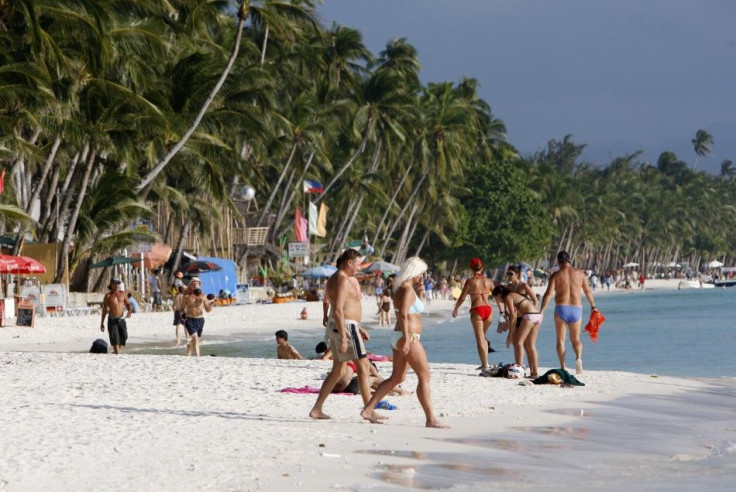Visa-Free Visits To Philippines Still Don't Include China And Taiwan

The Philippines has expanded the country’s new visa-free policy to be inclusive of citizens from 151 countries and regions, allowing travelers to avoid the hassle of obtaining a visa if their stay is under 30 days, instead of the previous 21 days. Many in Chinese media were angered because the amended policy, which came into effect on Aug. 1, was not extended for passport holders from China’s mainland or Taiwan.
China’s Global Times is reporting that the ongoing territorial dispute in the South China Sea over several small islands is the reason behind the visa snub. “Both the Chinese mainland and Taiwan are embroiled in disputes with the country,” Zhuang Guotu, dean of the Research School of Southeast Asian Studies at Xiamen University, said to the Global Times. “Its decision to exclude people from the two regions is a retaliatory move, especially, against Taiwan.”
The three governments have been ensnared in back-and-forth political and economic standoffs. Last May, China issued new passports to its citizens that included watermark illustrations of several disputed islands and maritime territories, including the Spratlys and Paracel Islands. After the Philippine government discovered this in November, Philippine immigration officers were told not to stamp Chinese passports that featured the controversial map and instead issue visas on a separate piece of paper. The Philippine government saw stamping the passport as a sign of acknowledging the passports to be correct.
Taiwan and the Philippines have also had their share of political disputes. Most recently, the Philippine Coast Guard was found to be responsible for the fatal shooting of Taiwanese fisherman Hung Shih-Cheng. The May 9 attack triggered a lot of outrage among Taiwanese, adding to an already tense situation. Taiwan’s president, Ma Ying-Jeou, said that the incident threatened economic relations between the two nations and placed a hiring freeze on Filipino citizens in addition to an advisory against traveling to the tropical nation. The sanctions on the Philippines reportedly affected more than 10,000 overseas Filipinos.
“This is a tit-for-tat response to Taiwan’s sanctions and Manila wanted to show they would not give in to pressure,” Zhuang added.
However, Filipino news outlet ABS-CBN is reporting that the country’s Department of Foreign Affairs (DFA), the government arm in charge of visa issuance, has not included mainland China or Taiwan since 2010. The DFA instead said that the change was made to help further accommodate foreign tourist travel.
“This move will hopefully encourage more tourists and investors to visit and stay in the Philippines by removing the need for them to report to immigration offices for a stay up to a month,” Assitant Secretary Jaime Victor Ledda of the DFA Consular Affairs told Filipino news site GMA. “It will also give them more flexibility in planning and managing their schedules.”
© Copyright IBTimes 2024. All rights reserved.












